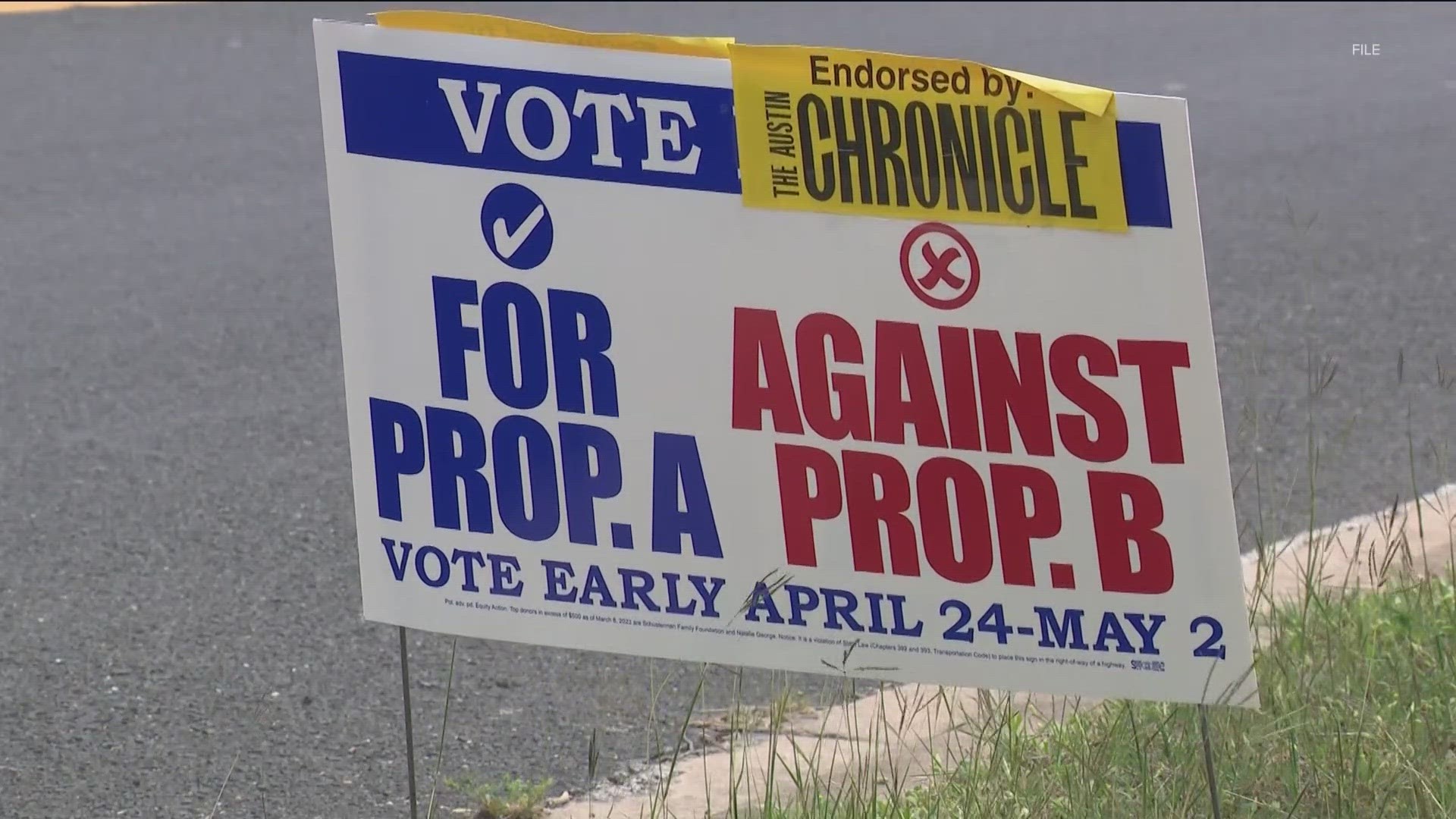AUSTIN, Texas — Equity Action, a nonprofit pushing for police accountability, filed a lawsuit last week against the City of Austin and multiple leaders for not fully implementing the voter-approved Proposition A, also known as the "Police Oversight Act."
It's been seven months since Austinites overwhelmingly approved Prop A, which would give the Office of Police Oversight access to police records to conduct its own officer misconduct investigations separate from police.
There have been some delays in the City's implementation.
"We'd love to see our democracy in action," said Alicia Castillio with Equity Action.
The lawsuit names Interim City Manager Jesús Garza, Interim Chief of Police Robin Henderson and Director of the Office of Police Oversight Gail McCant.
In September, the Austin City Council passed a resolution to get city leaders to move faster on implementing Prop A.
"There's a number of things that have caused some delay," McCant said during a Public Safety Commission meeting last week.
McCant said technology delays, hiring and coordinating with the various City departments are a few reasons the process is delayed. She said despite that, they've implemented 82% of the proposition – but Equity Action said that's not true.
"Things like failure to maintain their own records that are independent from the police in order for them to do a more independent investigation, and then, most importantly, the failure to discontinue maintenance of the notorious G file," Castillo said.
The G file has historically been a confidential Austin police personnel file with officer complaints. Prop A was supposed to dismantle it and make it public, but the City said there needs to be more clarity about whether state law prevents them from legally sharing that information.
"It's important to know about the file that most police departments in Texas do not have one," Castillo said. "Our own Travis County sheriff's department does not have one."
Michael Bullock, the incoming Austin police union president, said, "Other departments do have similar protections."
"It may not be G file, but it's other layers of protection that they are provided," he said.
Bullock said the department wants to keep these files sealed because of Austin's political climate, not to protect bad apples.
"We're not trying to hide misconduct," Bullock said. "Officers need to be held accountable where appropriate, but there is a reason that that information is kept confidential, and it's primarily because it's something that can be abused. Anybody can make a false accusation against an officer. Anybody can lie and anyone can say, you know, that an officer did something that didn't happen."
In a statement, Garza said:
"City employees, especially in the Office of Police Oversight, have been working diligently to implement all aspects of the new law. I am proud of their work, and while I always wish we moved faster to implement changes, the OPO staff are working hard to meet all new mandates of the Austin Police Oversight Act. The outstanding question – regarding whether the historically confidential APD personnel files should be made public – is an important and delicate one. For that reason, we welcome the lawsuit. It will allow the courts to weigh in on this important issue."
Castillo said the goal of the Police Oversight Act is to increase transparency and deter police misconduct by ensuring there's discipline, consequences and accountability when it does occur.
"The police can't police themselves," Castillo said. "It's not the policing system that's going to offer us relief from police misconduct. So it's really important that community oversight can be brought to fruition in a really meaningful way so that, yeah, the police aren't just policing themselves."
A court date hasn't been scheduled yet.

